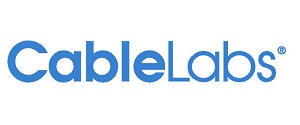CableLabs Investigates ‘Virtual’ CCAP
The smarter way to stay on top of the multichannel video marketplace. Sign up below.
You are now subscribed
Your newsletter sign-up was successful

Keeping pace with a trend that is seeing broadband vendors transition key functions into software, CableLabs has initiated a project that will investigate a “virtual” form of the Converged Cable Access Platform (CCAP), a next-gen, high-density architecture that will put all services under one roof by combining the functions of the cable modem termination system and edge QAM.
“We’re starting to investigate how a virtual CCAP would look like,” said Chris Donley, director of SDN (software-defined networking) technology at CableLabs.
That vCCAP work, which Donley says is in the “relatively early” stages, stems from CableLabs’ study of the advantages promised by SDN and network functions virtualization (NFV) – two tech trends that are gathering interest and momentum across the telecom industry.
In general terms, SDN separates the control plane from the data plane, while NFV aims to put into software functions that have linked to purpose-built hardware, such as firewalls, Web filtering, and load balancing, and instead operate them on generic servers.
The advantage of this “cloud play for the network,” he said, is it can lead to an acceleration of service deployments and enable cable to develop new offerings “at Web scale.” CableLabs started to take a closer look at SDN and NFV in 2012, and joined the European Telecommunications Standards Institute’s NFV specs group in the fall of that year.
Donley said vCCAP project will focus on which elements of the architecture could be virtualized, with an initial goal to create a common architecture that still provides vendors with enough flexibly to differentiate their products. “My vision is to keep this as lightweight as possible to give a lot of room for innovation.”
He expects that work to product a vCCAP technical report by the second half of the year. CableLabs and its members and partners will later determine whether new specs will be required to accommodate more CCAP virtualization.
The smarter way to stay on top of the multichannel video marketplace. Sign up below.
In the meantime, CableLabs has already started to bring SDN elements to the cable plant, including the writing of a plug-in for PacketCable Multimedia, a spec that enables QoS in IP-based applications, that can be attached to OpenDaylight, an open source SDN controller. CableLabs has also started work on a “virtual CPE” prototype for Metro Ethernet services that runs on Rasberry Pi microcomputer powered by a $35 off-the-shelf Broadcom chipset. In the envisioned scenario, the software stack could fit into the data center to provision and control a virtalized version of a MetroE endpoint, Donley said.
Many CCAP vendors have begun to pursue virtualization product strategies, while startups such as Gainspeed are focusing on virtualized forms of the CCAP right out of the chute. More detail on how CCAP vendors are preparing for a more virtualized cable environment will be covered in the March 17 issue of Multichannel News.
